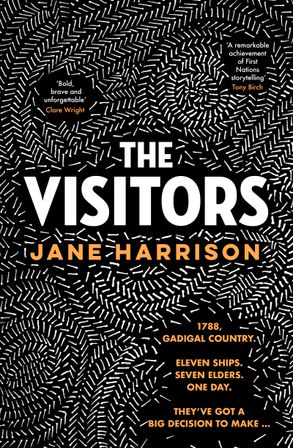Professor Andrew Norton has criticized the level of funding, as it assumes a 25% attrition rate per year. He points out this is higher than is typical. This may reflect the demand for skills in industry. Universities may have difficulty keeping students in the program, when they could be earning in industry after only completing part of the program, especially those in the AUKUS courses who will be required to meet security vetting requirements. One approach would be to have nested work integrated programs, where students study while working on AUKUS, with their work being submitted for assessment. Students could complete the first part of the program, and be awarded a qualification to get them an entry level job. They would be then study while working for a promotion.
Wednesday, November 29, 2023
Broad Skills Needed for AUKUS
Batteries Included for Dunkelflaute: Future of Neighborhood Batteries in Australia Conference
Tuesday, November 28, 2023
ANU Energy Update 2023
Letting academics look after students
 |
| Professor Andrew Norton |
It is common to specify course content for a vocational program. These are standardized nationally between TAFEs and non-government vocational education institutions. In theory universities each decide what to teach, but for vocational courses they must all follow the requirements of external accreditation bodies. Academics serve on these bodies, accredit each others programs, and swap note on what and how to teach it. As a result there is not that much difference between universities.
The content requirements for START-UP HELP are reasonably generic, and much as I would specify from years working, teaching and mentoring in this field. I would have no problem designing courses which fitted with the government requirements, and university norms..
A more difficult issue Professor Norton raises is mandated student support policy which all universities must follow. However, any institution making a genuine effort to support students at risk should not have difficult complying with government requirements. Professor Norton gives the example of a student unable to keep up with studies, due to a high paid workload. If this is temporary, an appropriate academic adjustment would be to provide extensions for assignments. If it is a long term issue, other solutions would be work integrated learning and reduce their study load.
One way to reduce the impact of such problems is to catch them early, rather than a crisis at the end of semester. Progressive assessment helps with this. Small regular assessed tasks allows academics to identify studnts who are having difficulties, and offer help. Having trained teaching staff, and specialists they can refer studnts to also helps prevent a problem becoming a crisis. Also this can help force students to make difficult decisions. As an example a student who has 0 out of 2 on weekly tasks for each week of the semester has a clear signal they need to act, or fail.
Course and assessment design can have flexibility built in, rather than added post-hoc. This reduces workload, and stress for staff, as well as avoiding studnts being stigmatized.
When designing assessment, I am ethically, and legally, required to ensure every student who passes meets the learning objectives for the course. This is not just a matter of equity, as Professor Norton suggests, but public safety. The public assumes a graduate is competent to do a job which livelihoods and lives depend on.
Monday, November 27, 2023
Best of ASCILITE 2023
The
Australasian Society for Computers in Learning in Tertiary Education ASCILITE 2023 Conference starts next week at the Te Pae Christchurch Convention Centre. I have to make difficult choice as to which of the parallel sessions to attend, and the luxury of not having to present (although I expect I will have to chair something). 
Te Pae Christchurch Convention Centre,
Photo by Klajban, CC BY-SA 4.0,
via Wikimedia Commons
MONDAY 4 DECEMBER
0845 - 1000 Plenary - Rakaia Room
0930 -1030 Keynote address: Being effective isn’t authentic: Building digital education culture David White1030-1100 Morning Tea + Poster Viewing
11:00 AM Conway 4, Assoc Prof Dawn Gilmore, Academic Director, RMIT Online
Qualifications, Interpersonal Skills, and Career Pathways: Building a Competency-Based Tool for the Recruitment and Career Development of Learning Designers
1:30 PM Rakaia Room Dr Shannon Rios, Lecturer, The University of Melbourne
Authorship Verification in Software Engineering Education: Forget ChatGPT and Focus on Students' Academic Writing Profiles
3:40 PM Conway 4 Dr Kashmira Dave, Lecturer, Academic Development, University of New England
Beyond Appearances: Unveiling the Hidden Biases in Hiring Academics in Australian Universities
ps: I will be in and around the 3 to 6 December. Happy to catch up with people, and give a talk, if someone has an audience and venue.
Thursday, November 23, 2023
ANU Bandalang Studio Launch
Greetings from the launch of Bandalang Studio at the Australian National University in Canberra. The Bandalang Studio at the ANU School of Engineering will explore indigenous knowledge systems in innovation, design, research and teaching. I tried the VR headset with Lynette Wallworth's 'Collisions', a 3d immersive film.We are having a reading from the book "The Visitors", by Jane Harrison. The point of this is that Bandalang Studio can teach non-indigenous people about how to live with country.
Indigenous engineering design demonstrates a highly sophisticated transdisciplinary systems thinking approach towards solving problems. ...
What is the Bandalang Studio?
Bandalang is a Wiradyuri language name which means ‘joining’ or ‘junction’. The name Bandalang was gifted to the studio by Ngambri (Walgalu), Wallaballooa (Ngunnawal), Wiradyuri (Erambie) custodian, Paul Girrawah House. The name symbolises the spirit of collaboration which is integral to the mission of the ANU Bandalang Studio. The Bandalang Studio is a place in which Indigenous Knowledge and traditional Western practice can collaborate to find sustainable solutions to our future in engineering. ...
Bandalang Studio Founding Principles
The Bandalang Studio is founded on four principles which guide our strategic priorities.
- Principle of Bandalang (Collaboration) bandalang = joining, junction (noun)
- Principle of Wudhagarbinya (Listening ) wudhagarbinya = listen or winhangarra = listen, hear, think or ngattai = listen
- Principle of Dhurinya (Equality) dhurinya = being, continuing to being
- Principle of Gurray (Change) gurray = change or refreshment
The above languages include Walgalu, Wiradyuri, Dhurga and Ngunnawal/Gundungarra.
Bandalang Studio Mission
- platforming Indigenous Knowledge Systems in engineering nationally and internationally
- building Indigenous ways of thinking, being and doing into the ANU School of Engineering course structure, curriculum development and delivery
- fostering interdisciplinary collaboration and partnerships that support Indigenous projects and enterprises
- create life-long learning support pathways for Indigenous students, practitioners and researchers in engineering
- to critically address existing traditions, norms and values in engineering and technology"
From About Bandalang Studio Indigenous Engineering Design, ANU, 2023
Tuesday, November 21, 2023
Technological Security for Business Success
 |
| Craig Davis, Andrew McCallum, Mandy Snashall, & Petr Adamek |






